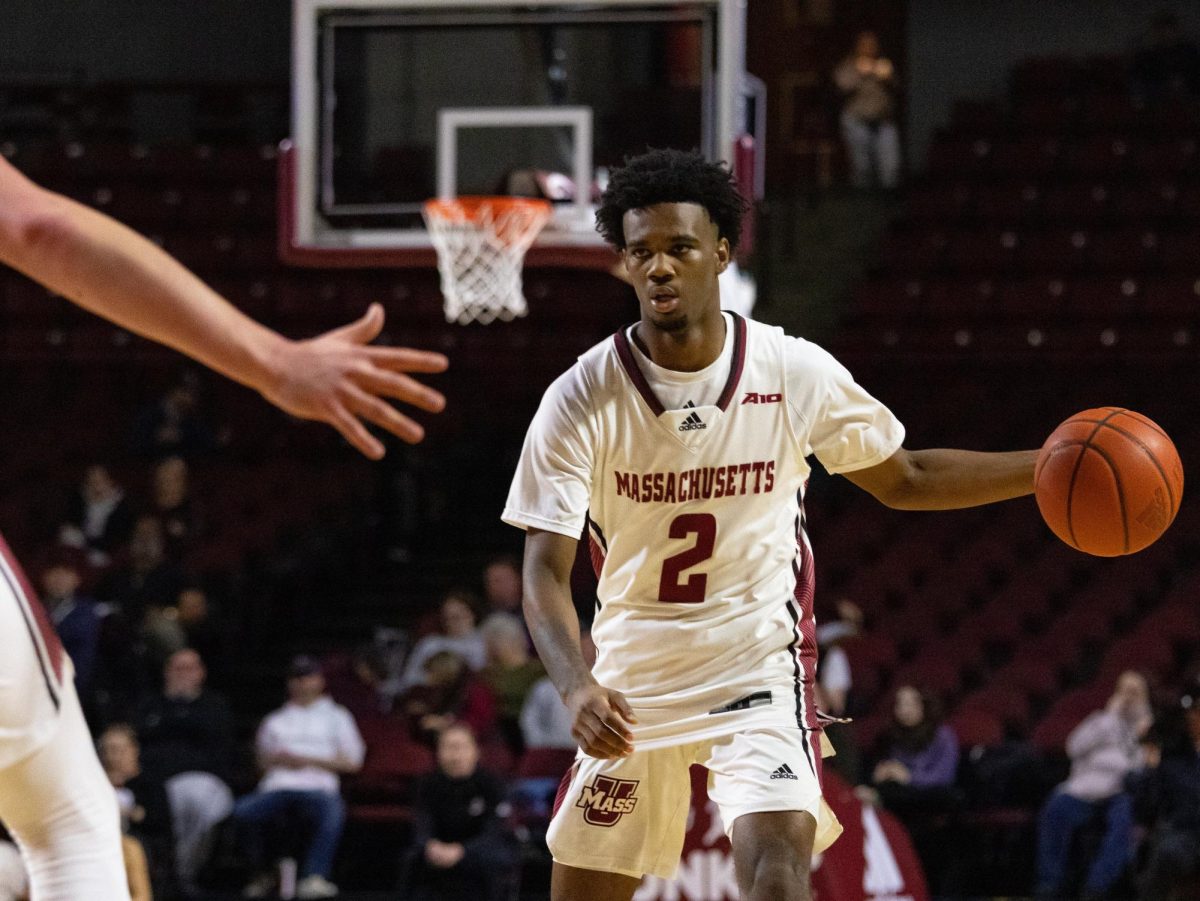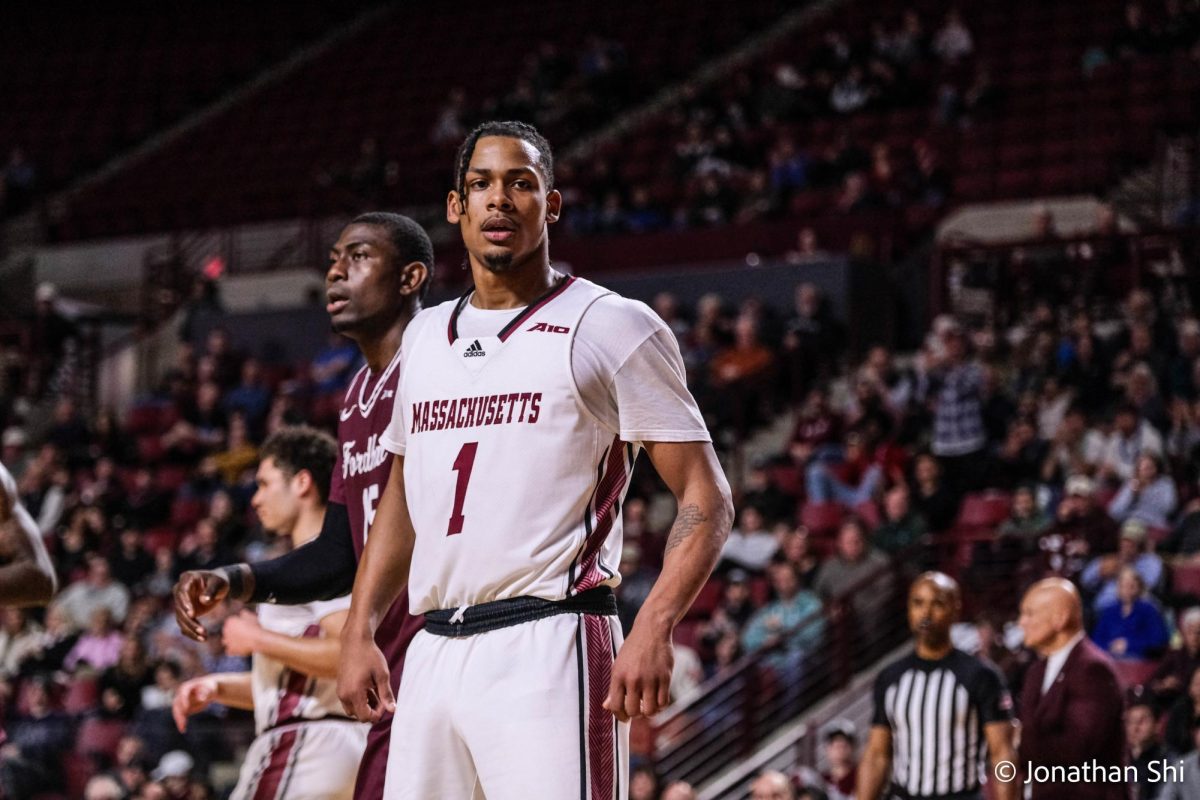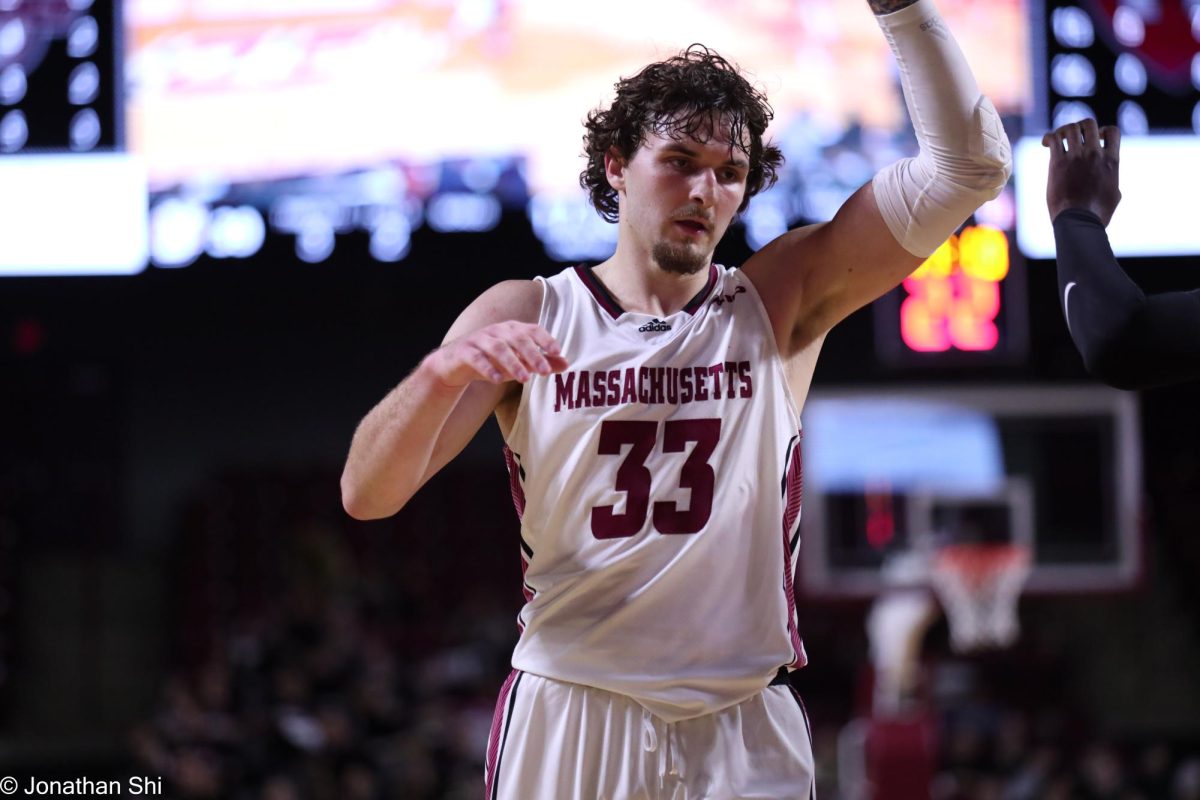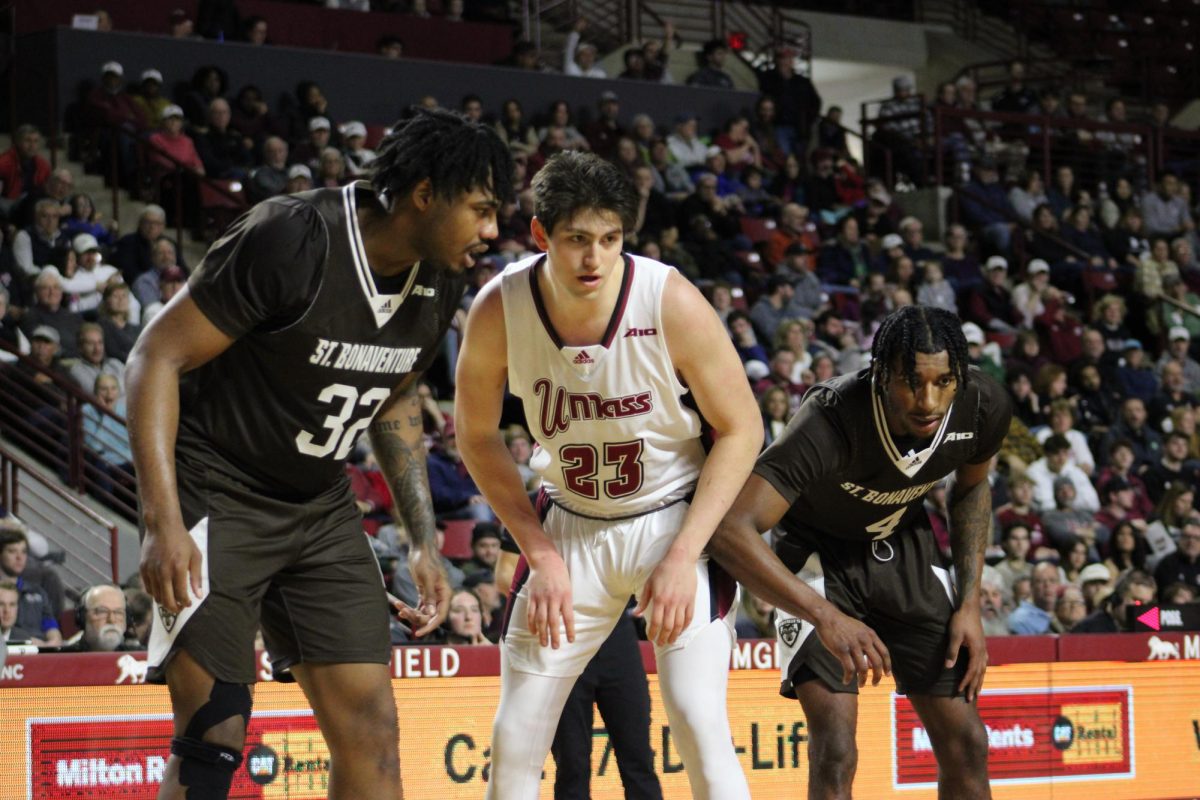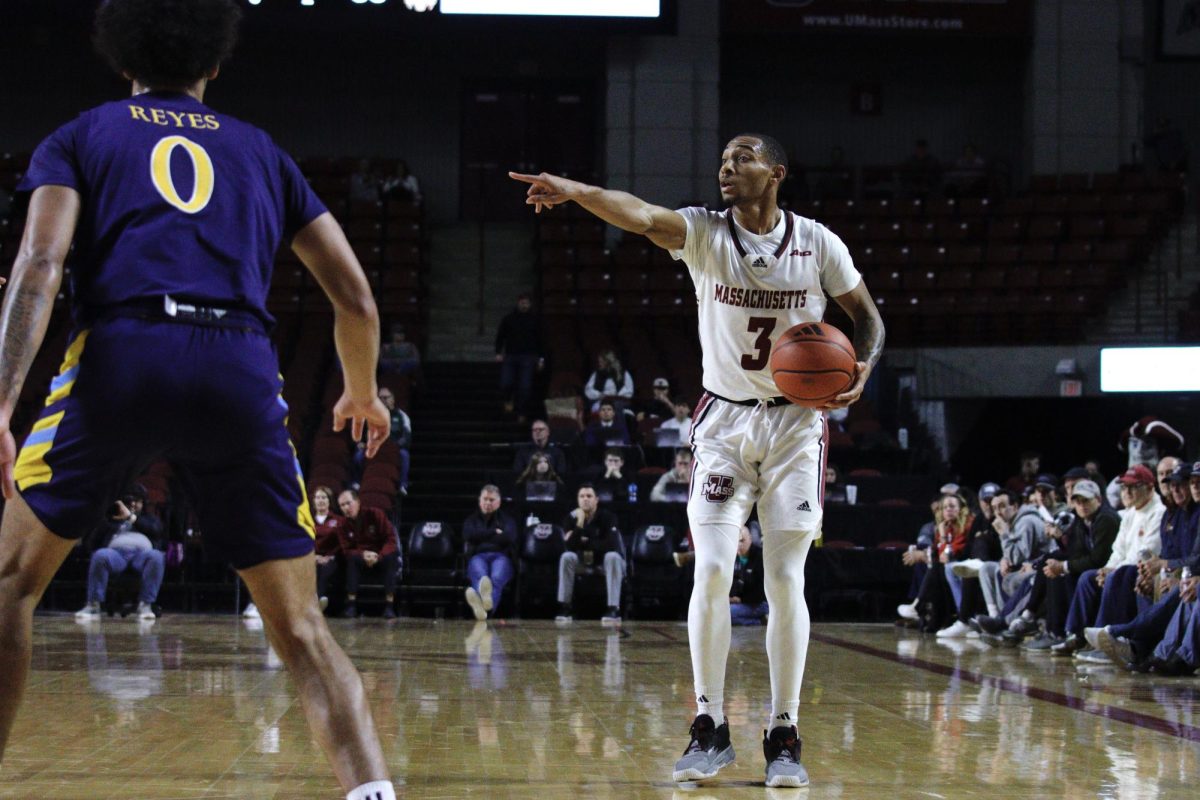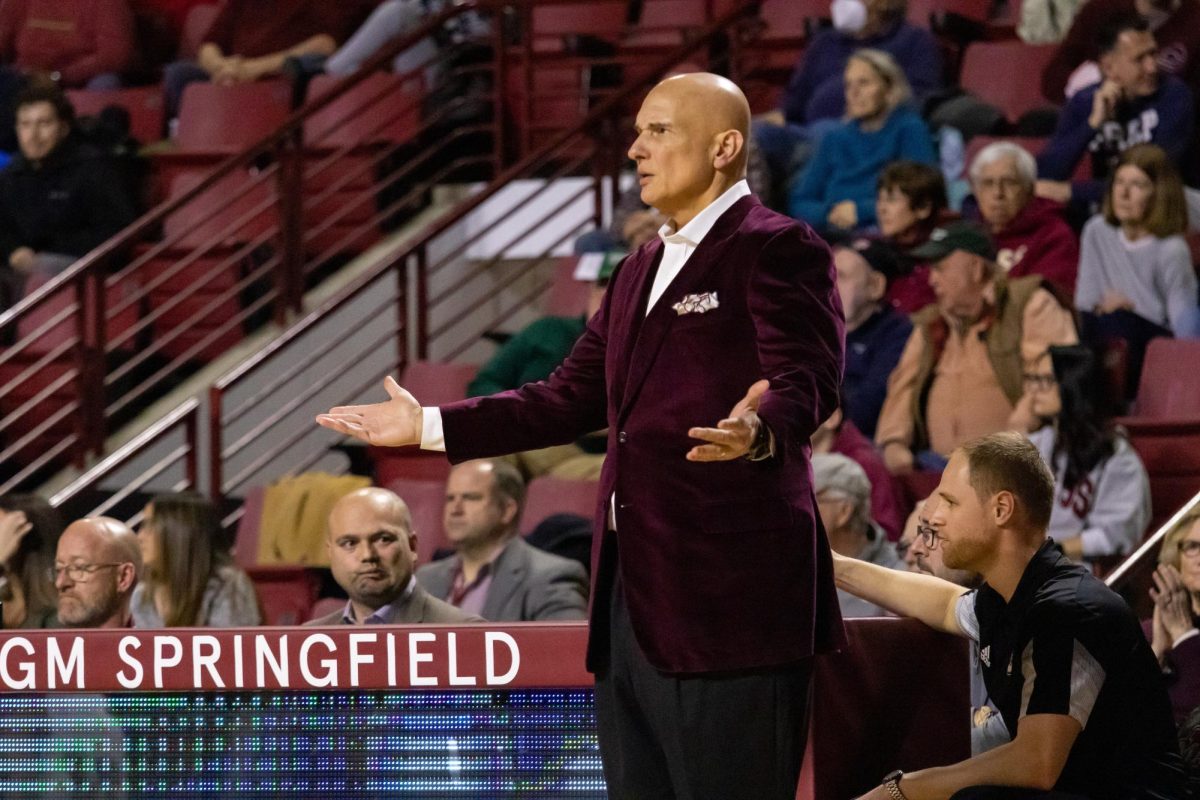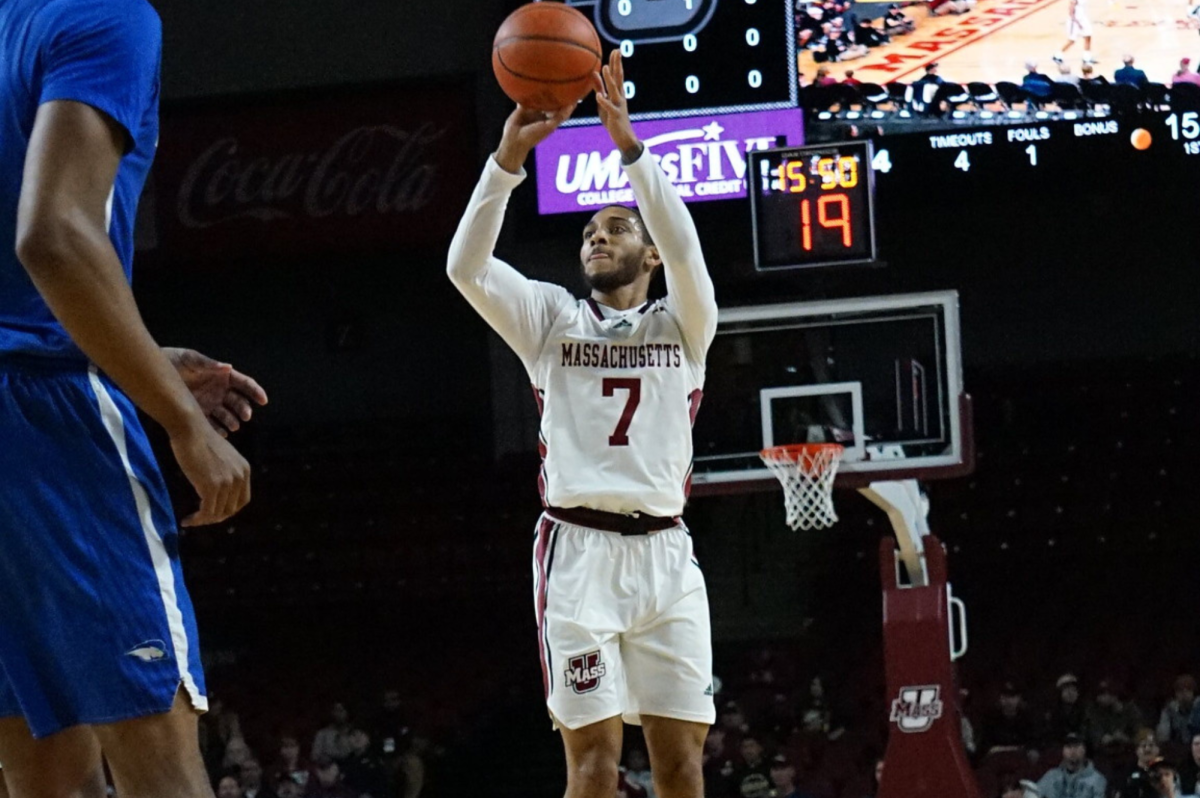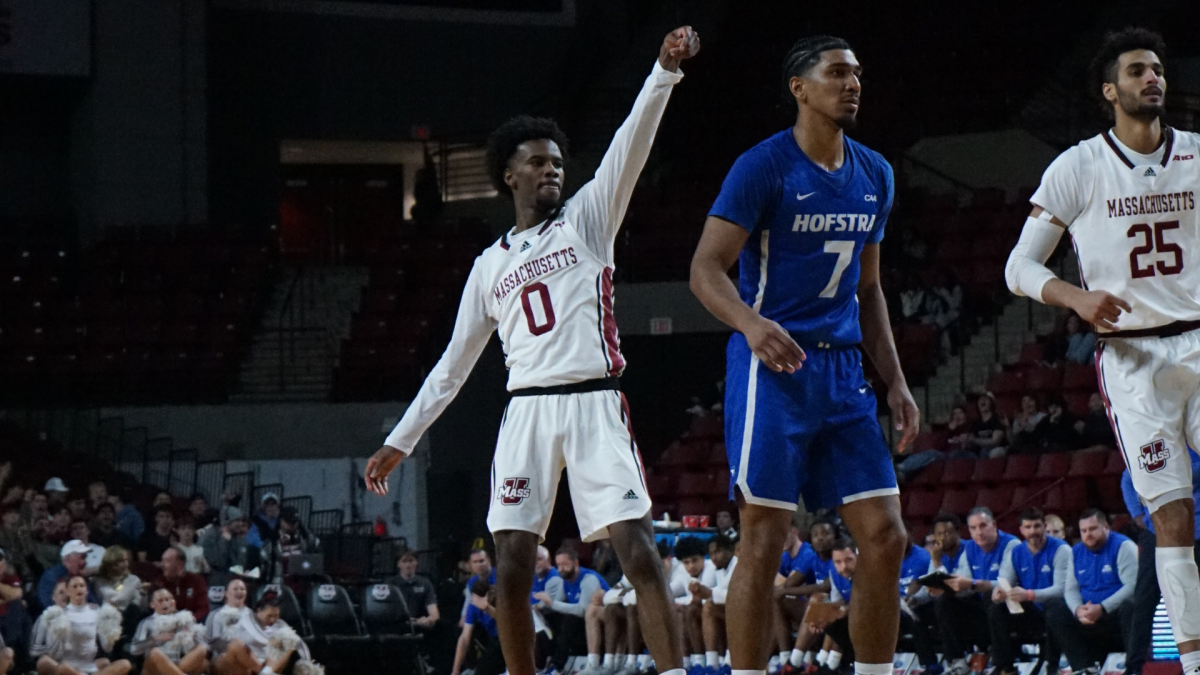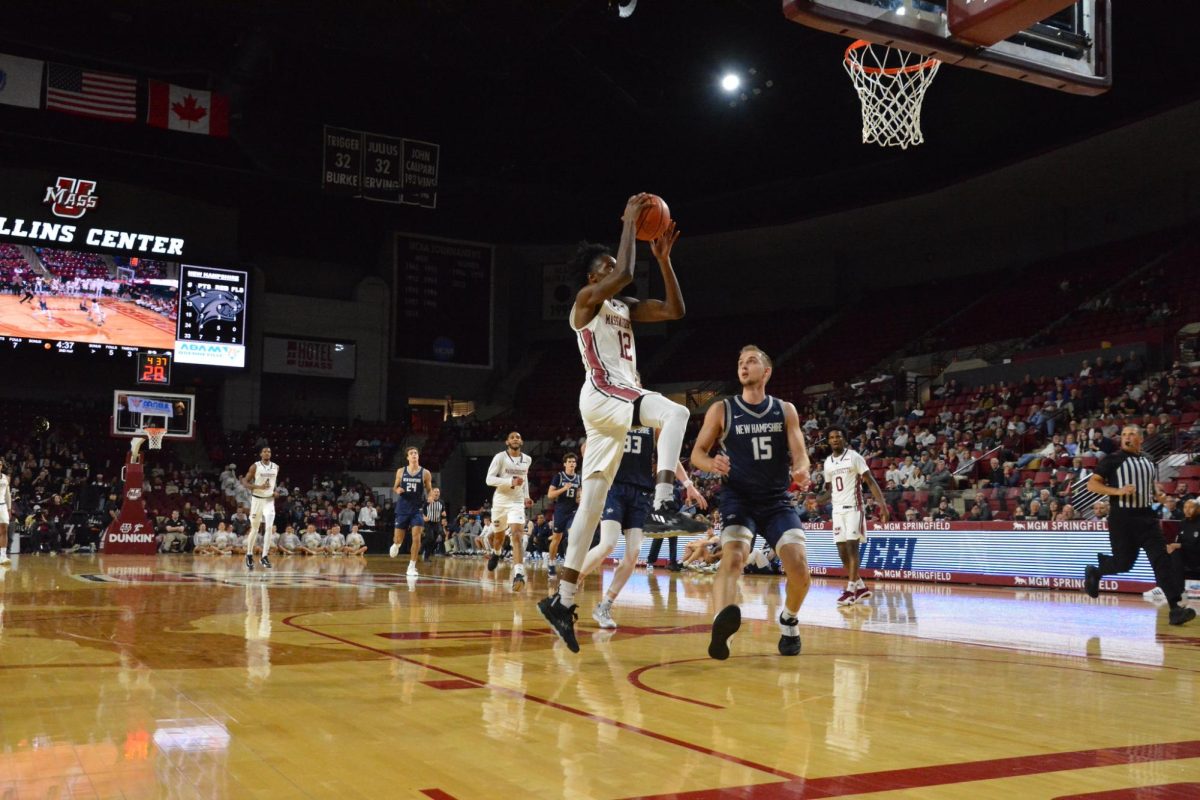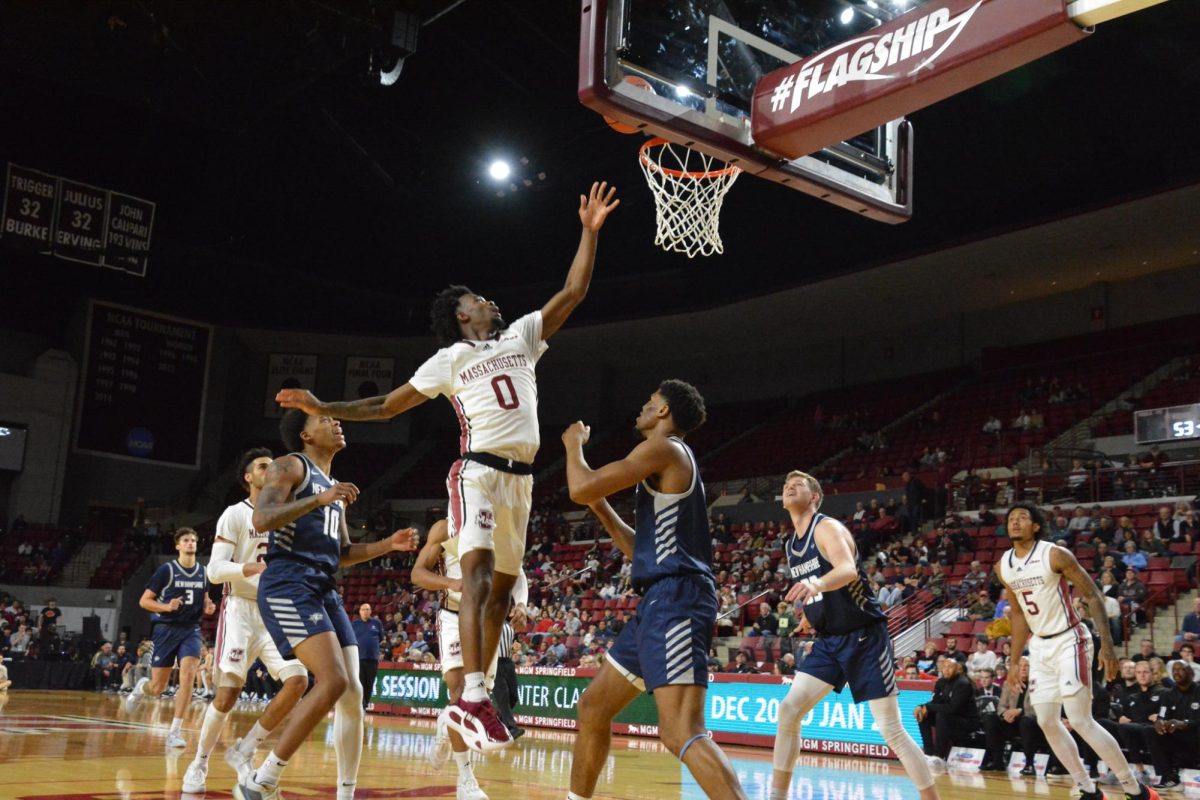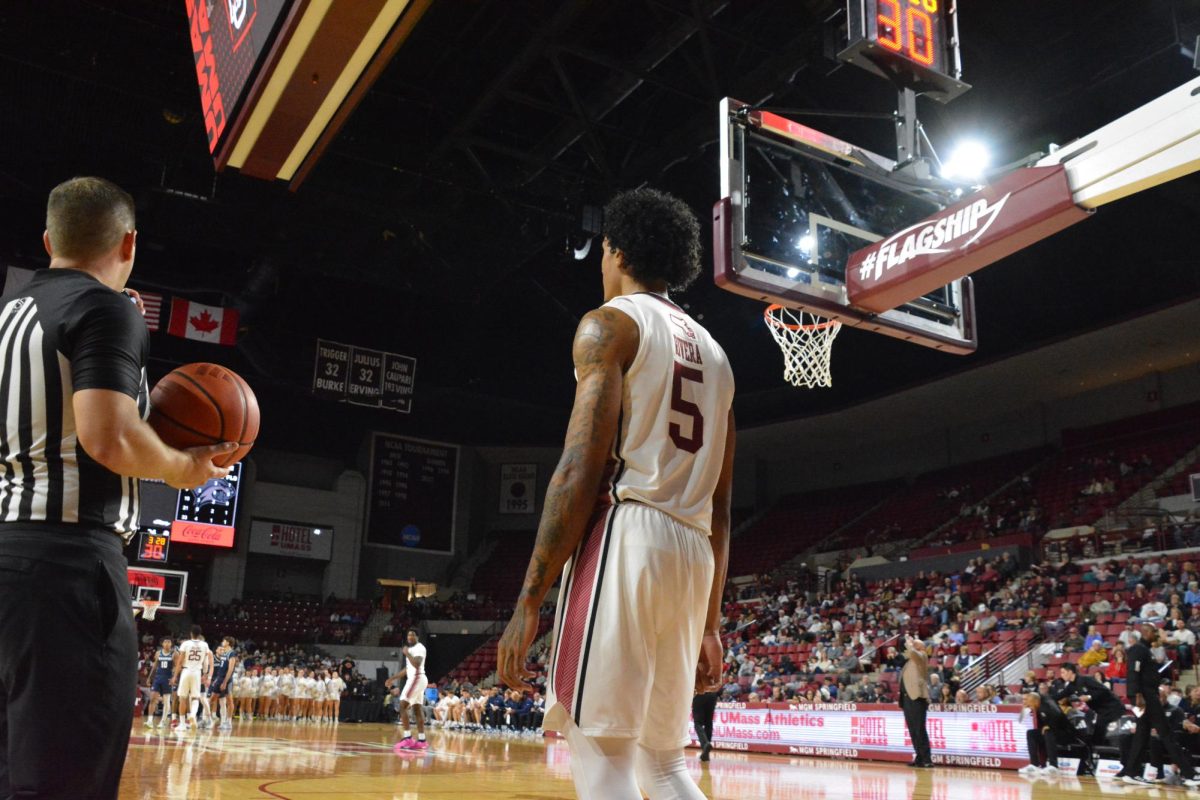
After turning around the program in just one year, and restoring some of the hype that surrounded the team in the heyday of Massachusetts men’s basketball, most people around campus are aware of point guard Chaz Williams’ exploits on the basketball court.
But what remains relatively unknown are the circumstances that led to Williams’ transfer to UMass in 2010.
These circumstances included a difficult family decision, the departure of a revered coach and the pursuit by a team desperately in need of a player capable of turning a once-storied basketball program around.
Leaving home
Williams grew up in Brooklyn, N.Y., and attended Bishop Ford High School – the former school of former NBA players Armond Hill and Charles Jones.
The 5-foot-9 point guard built an illustrious career in his four years at the school. He won a state championship his junior year and scored 32 points and dished out 11 assists in the championship game. He averaged 25.9 points and 6.2 assists in his senior year.
Williams was just a sophomore in high school when he committed to Hofstra.
Less than an hour from his hometown, Hofstra looked like a perfect fit for Williams. By the middle of his freshman season, he won the starting point guard spot. Williams finished second on the team in points per game (9.8) and first in assists (138). The Pride finished the season 19-15 overall and 10-8 in conference play.
Hofstra figured to contend for a Colonial Athletic Association title the following season with Williams and current NBA player, Charles Jenkins, returning.
However, that all changed on March 24, 2010.
Then Hofstra head coach Tom Pecora left the Pride for the head-coaching job at Fordham University.
“I realized once coach Pecora left that I was going to transfer,” Williams said. “I committed to him my sophomore year in high school and I wanted to stay true to my commitment, so I didn’t decommit and I was hoping he would stay true to his.”
Pecora did not.
“Unfortunately it didn’t happen that way, but I understand it’s a business so I can’t really be mad,” Williams said.
A week after Pecora left, Hofstra signed Tim Welsh, the former Iona and Providence coach.
“I actually was going to stay there when he was there … he was a pretty cool coach,” Williams said. “He expected big things out of me and he was pushing me to work hard and everything like that.”
But Welsh’s tenure with the Pride lasted just more than one month when he was terminated following a drunk driving incident in late April.
“Once he had left, it was all over for that,” Williams said. “There was just too much going on.”
Days later, Mo Cassara became the third Hofstra coach in the span of just 43 days. Cassarra and Williams spoke on a few brief occasions, but he had had enough.
“I was disappointed because I expected to play my four years at Hofstra and it was just a place I wanted to because it was so close to home.
“Things happen in life, and you have to move on,” Williams said.
Family decision
Williams had trepidation over transferring for one reason – his daughter, Cheree.
“The only thing that factored in was not seeing my daughter,” Williams said.
Transferring would mean going from about an hour away from his daughter to more than three hours away.
“It’s really hard being away from her,” Williams said. “It hurts a lot not being able to talk to her physically and play with her and stuff like that, but I understand that this is life, and it’s something I have to go through to make her life better.”
However, Williams said that being away from her now could pay off in the long run.
“I’m going to be away for her for a couple of years,” he said, “but hopefully it will play out great for me in the future and I can always be around her.”
Williams sees Cheree on the holidays, and occasionally she comes to his games.
“I talk to my daughter often on FaceTime and Skype, and she’s always smiling and in the upmost spirit, I just love talking to her,” Williams said.
A new connection is born
When asked the reason he picked UMass, rather than the multiple Big East teams or the other Atlantic 10 team interested in him, he answers, “DK, man.”
Williams doesn’t refer to Kellogg as “Coach Kellogg” or “Coach,” Williams calls him by his nickname, “DK.”
“He’s a cool coach, and a great father figure,” Williams said.
As many may know, Kellogg played point guard for UMass from 1992 to 1995, during the coveted and top days of UMass basketball.
“I always wanted to play for a coach who played at the highest level,” Williams said.
Kellogg holds Williams in the same reverence.
“He listens, he learns and he has some intangibles that are hard to teach, you don’t have to coach him through every situation or scenario, because he’s played the point guard spot and understands what it’s all about,” Kellogg said. “He gets a five on a scale of one to five, in terms of coach-ability goes,” said Kellogg.
When Kellogg heard about a Colonial Athletic Association All-Rookie point guard seeking a new school, he reached out to him.
“I heard about a young man who was looking to transfer from Hofstra after their coaching changes, and what was great about it was he was looking to transfer up a level and go to a place where he could be successful,” Kellogg said.
The fit seemed perfect.
Williams would have the opportunity to be the leader of a struggling team and Kellogg would receive the thing his team desired most: a starting point guard.
“It was a weird situation; we were in desperate need of a point guard and someone that would be ready to start,” said Kellogg.
Williams made an official visit to UMass and instantly built a connection with the team and coaching staff.
“I got accustomed to this group of guys,” Williams said. “We grew up in the same type of atmosphere as I did, so we had more in common.”
Soon after, Williams made his transfer to UMass official.
But the transition from Hofstra to UMass wasn’t easy for Williams.
“It’s always different moving to a new place,” Williams said. “New faces, new names that you’ve got to get accustomed to and it was pretty difficult at first.”
Because of NCAA transfer rules, Williams watched the 2010 season from the sidelines. He practiced and attended home games, but did not travel with the team.
Despite the fact that Williams could only watch as the Minutemen completed their third straight disappointing season, he viewed the time off as a positive.
“It got me to see the game from a different view and a different perspective that I’d never seen before,” Williams said. “It helped my game a lot, because the next year I was able to see things differently from an on-looker’s standpoint.”
Williams sat back and learned from his teammates’ mistakes. UMass finished 15-15 that season, and 7-9 in the A-10. The team ended the season with a 78-50 loss to Dayton.
Kellogg’s record in his first three seasons was 39-53, and with the patience of the few fans that did remain loyal to the team – UMass averaged just 3,300 fans per home game –wearing thin, something drastic needed to happen.
Instant success
The progression from annual A-10 cellar dweller to an NCAA Tournament fringe-team took just one year.
UMass won 25 games, 10 more games than the previous season, and advanced to the Final Four of the National Invitation Tournament – its first postseason berth since 2007-2008, when former coach Travis Ford took the Minutemen to the NIT championship game.
At the center of the turnaround was the little point guard from Brooklyn.
While Williams faced a difficult transition off the court, getting adjusted to a new school, and having to sit out one season, there was no transition period on the court.
Williams played the role of floor general, leading scorer, top distributor, sharpshooter, defensive menace and even contributed on the boards.
He led the team in points per game (16.9), assists per game (6.2), steals per game (2.2), 3-point percentage (42 percent), free throw percentage (79 percent) and minutes per game (35). The shortest guy on the team, by 8 inches, finished with the fourth most rebounds on the team.
“I knew he was going to be pretty good, but I think he exceeded expectations on how good he would be from a numbers standpoint,” Kellogg said.
The season ended with a loss at Madison Square Garden against Stanford in the Final Four of the NIT.
But behind the exploits of their new point guard, hope had been restored to the UMass faithful.
“It just so happened that I fell into a perfect role here, and it’s benefitting me and the program and I love it a lot and my teammates embrace it,” Williams said.
Jackson Alexander can be reached at [email protected] and followed on Twitter @MDC_Alexander.

